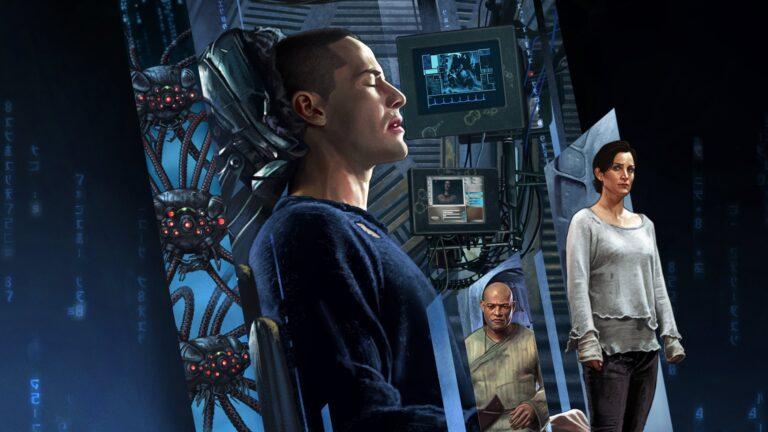
The Matrix at 25
Somehow, it’s been twenty five years since ‘The Matrix’ was released. The Keanu Reeves-led
movie has become one of the best known sci-fi movies of recent years, giving rise to several
sequels and spin-offs, and influencing a lot of what would follow as the 21st century brought a
new style of science fiction to our screens.
Set several centuries in the future, Earth has been devastated by a war between humans and
the artificial intelligence they created. AI has gained the upper hand and humans have been
reduced to a power source for the machines, suspended in stasis while their body heat is
harvested. They’re kept happy and oblivious by a computer program known as The Matrix,
which feeds information to their brains, making them think they’re living normal lives in a late-
20th century civilization, and are unaware of their slave state. If anyone does start to realize,
they are taken care of by the Agents, a computer algorithm that manifests as suited government
officials. Some individuals have managed to escape this, living in hidden cities below the
surface, fighting a resistance war against the AI.
At the center of the story is Neo (Reeves), a computer hacker who realizes that something isn’t
right about the world he’s living in, and when the resistance leader Morpheus (Laurence
Fishburne) offers to show him reality, he accepts, being pulled out of the Matrix into the real
world, where he is trained to take down the program and the AI that controls it.
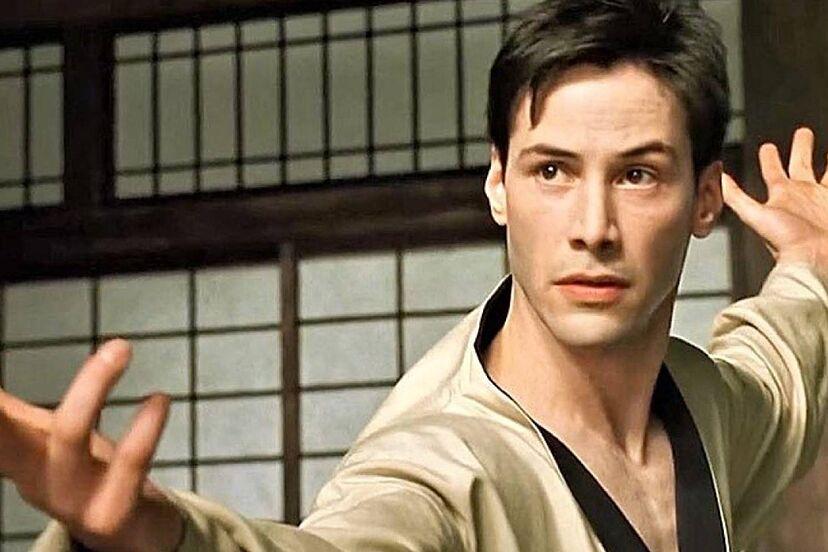
The movie’s often regarded as one of the most important releases of the past few decades, not
least because of its effects work. It’s important to remember ‘The Matrix’ was made before the
‘Star Wars’ prequels and ‘The Lord of the Rings’ trilogy made their own advances in this area,
and what was achieved is spectacular. In particular, the creation of the “bullet time” effect,
where the action is slowed down while the camera continues to move at normal speed. This
enhances the film’s slightly hyper-real, unnatural feel, which fits perfectly into the world that’s
being created, where reality, physics, even death no longer matter, because nothing is real.
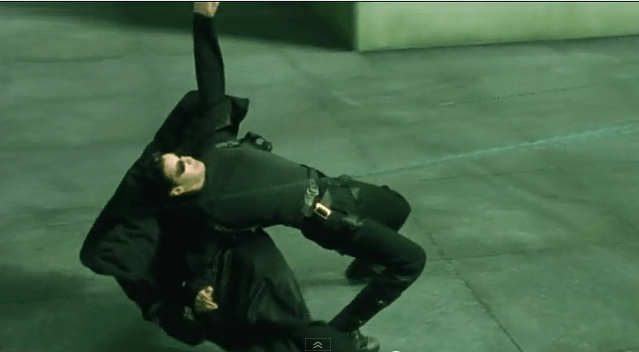
The movie has a lot going on, but the most important is its central idea of artificial intelligence
and its effect on the world. Rather than going down the usual route, where AI wants to destroy
the human race, as tread by films such as ‘Terminator’, ‘The Matrix’ has a different take, with
the idea that the machines will use humanity as a commodity to fuel their existence. Humans
haven’t just become subservient to the very technology they created, they’ve become less than
cattle, kept purely for the resources they can provide.
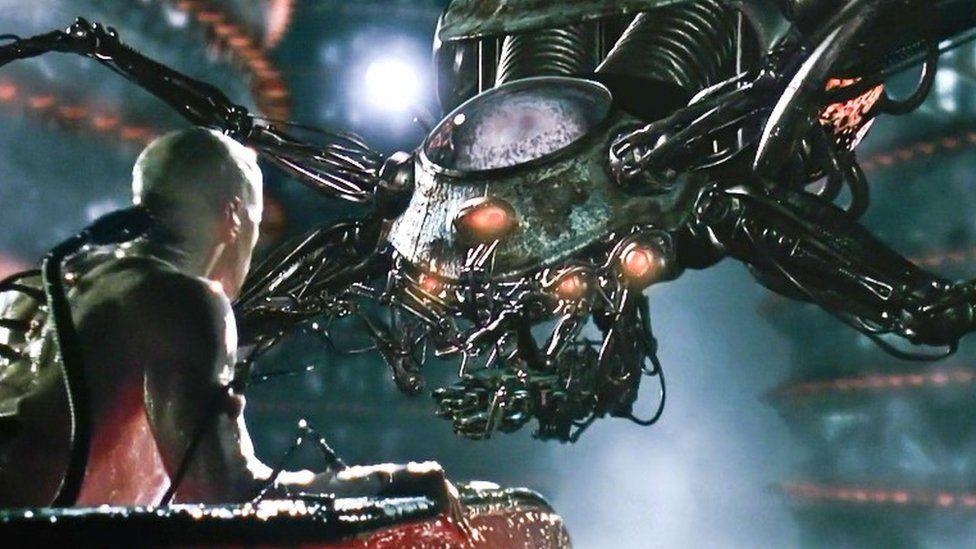
It’s interesting how, unlike many speculatory movies, two things from ‘The Matrix’ have actually
come true in recent years, which could almost make the story a reality. The first is AI, which has
become mainstream in the last few years, and by its very nature will only become smarter and
more advanced as time passes. The second is virtual reality, which is used to immerse us in a
completely fictional world through tech such as VR headsets.
Perhaps the most important element of the story is whether or not you would want to know what
kind of world you were living in. Despite it all being fake, for the most part, the inhabitants of the
Matrix are content with their existence, and aren’t aware that it’s all an illusion. This is explored
in the character of Cypher (Joe Pantoliano), one of the rebels. He’s been freed from his slavery,
yet doesn’t want to continue living in the dark, polluted, and harsh life that free humans have to
endure, striking a deal with the Agents to return to the Matrix and live a “normal” life, unaware of
any outside reality.
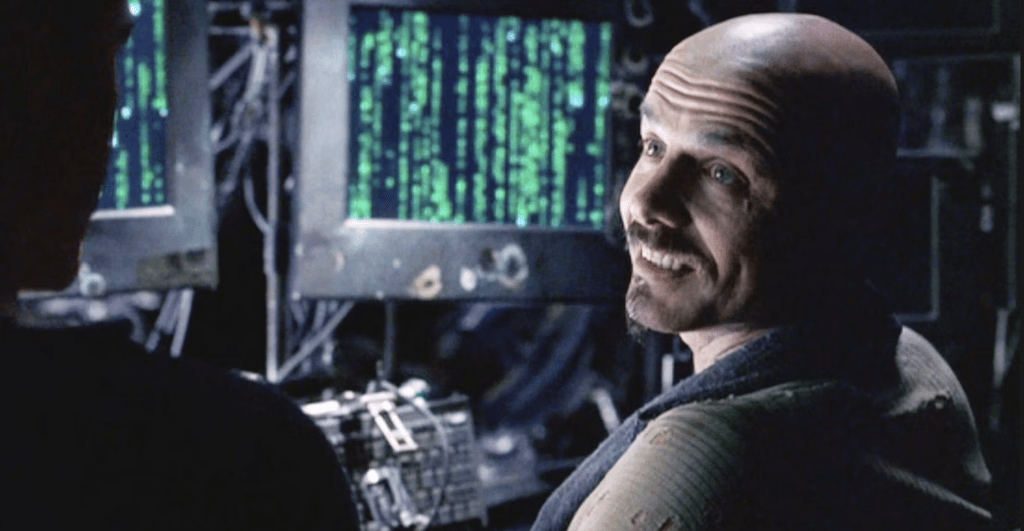
It’s an interesting question that the movie poses, and is more powerful than its central idea of
everything around you being fake, asking whether you would rather it were all fake if it meant a
more pleasant, easy life, and leaves an interesting open question about what kind of virtual
realities could be created in future that may allow people to take the blue pill and live in a fake
world.
The way ‘The Matrix’ really succeeds is in packaging its vision for the future in an action
spectacle. Much like earlier films, such as ‘Terminator’, it’s able to reach audiences who
wouldn’t be interested in a philosophical look at the subject matter, and as a result, it impacts
popular culture in a way other movies can only envy. While in some ways it’s clear this is a ‘90s
movie, it’s still as relevant today as it was twenty five years ago.



